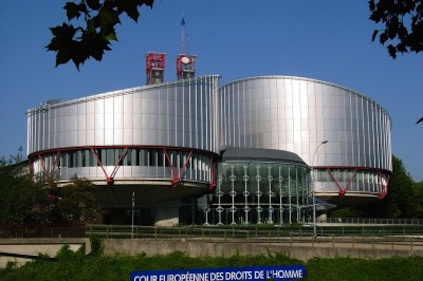
Important ECHR judgments in Polish cases
On Tuesday, 14 June 2011, the European Court of Human Rights delivered three judgments in cases in which Poland was a party. Each of the judgments found Poland in violation of regulations of the European Convention on Human Rights. HFHR experts have commented on these judgments.The first judgment was delivered in the case of Garlicki v. Poland. The complaint concerned the February 2007 apprehension and detention of Mirosław Garlicki by officers of the Central Anticorruption Bureau, as well as the famous press conference organised by former Minister of Justice Zbigniew Ziobro and the former Head of the Central Anticorruption Bureau, Mariusz Kamiński.
The Court ruled that an infringement of Article 5 of the Convention had occurred because an assistant judge adjudicated the case concerning Garlicki’s remand in custody. “This is another judgment of the Court in Strasbourg in which it was decided that allowing assistant judges to deliver justice violates the standards of independence of the judiciary necessary – among other things – for the ruling on remanding in custody,” commented Dr. Ireneusz Kamiński, HFHR expert.
The ECHR also delivered a judgment in Mościcki v. Poland, a Polish lustration case. The Court stated that there had been serious restrictions placed on the plaintiff’s opportunity to prove that his contacts with communist-era secret services had not been cooperation of an intentional and secret nature.
The Court took into account the fact that, in the plaintiff’s lustration proceedings, some documents had been kept secret and restrictions were imposed on access to case files. The Public Interest Spokesperson’s privileged position in the lustration proceedings was also not without relevance to the Court. “The Court decided that, in practice, the lustrated person was encumbered with unrealistic restrictions and the equality of procedural arms was infringed,” said Paweł Osik, a lawyer in the Strategic Litigation Programme.
The third judgment was delivered in Ciechońska v. Poland, a case concerning the death of the plaintiff’s husband, who was killed during his stay at a sanatorium in Kudowa Zdrój when he was hit by a falling branch. The investigation was discontinued four times, with the prosecutor’s office stating each time that the plaintiff’s husband died as the result of an accident. Proceedings were initiated against Kudowa Zdrój officials responsible for the environment but ended with an acquittal in 2009. Civil proceedings instituted by the plaintiff under the penal procedure had been dismissed by the court.
“This case indicates a deeper problem existing in the Polish law and related to the conducting of quick explanatory proceedings in the case of a death of the particular person,” said Dr. Ireneusz Kamiński. “In my opinion, similar conclusions will be repeated in the future when the Court adjudicates in Polish cases, already communicated, concerning, for example, medical errors.”


20.08.2015
 Cookies EN
Cookies EN